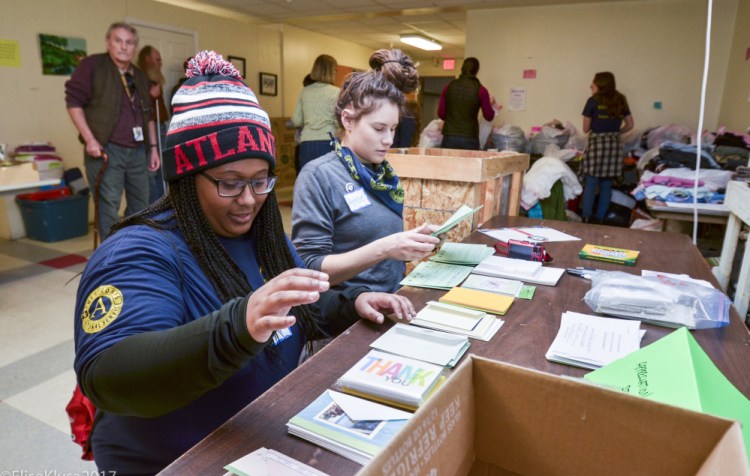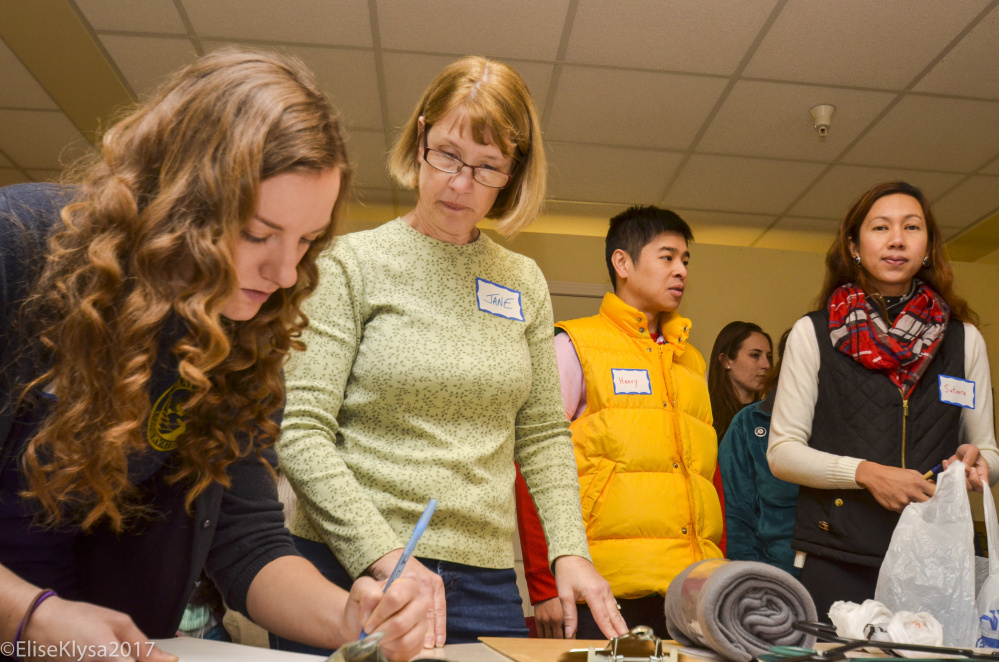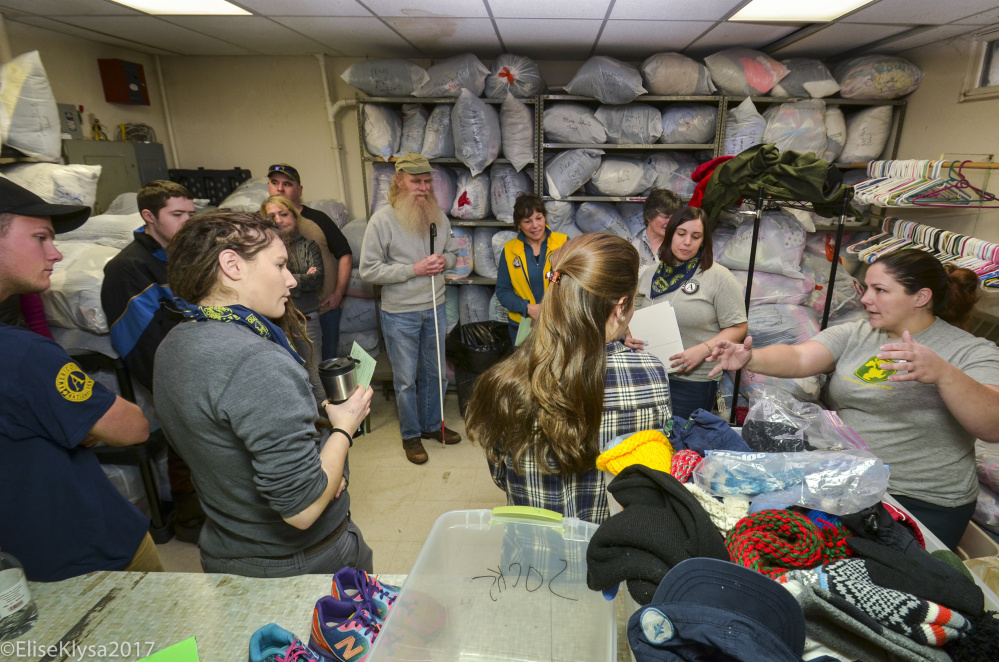Whether by digging through their closets for old boots and coats that would benefit the needy during the coldest part of the year, or stepping out of their comfort zones to show how much or little they have in common with their peers, dozens of people in central Maine found ways Monday to honor the legacy of Martin Luther King Jr.
At St. Francis Xavier Catholic Church in Winthrop, more than 30 area residents gathered to discuss how they might build “beloved community” – the vision of equality that King believed was attainable through nonviolent activism. Participants held discussions, took part in exercises that were meant to help them appreciate differences, and heard from a variety of religious leaders.
On Pleasant Street in Augusta, about 15 volunteers spent the day collecting, sorting and counting warm winter clothing that was donated in the weeks leading up to Martin Luther King Jr. Day.
“For me personally, it’s a big deal,” one of the volunteers, Rebekah Smith, 26, said of the holiday. “The legacy of Dr. King is important. He’s a great man.”
His activism is especially important to Smith, she said, because she grew up in Georgia, and, as a black woman, both of her parents knew how it felt to attend segregated schools.
Smith recently began serving as an environmental steward for Maine Conservation Corps, a group associated with the Maine agriculture department that organized the clothing drive in Augusta on Monday.
The event was organized in conjunction with the Augusta Community Warming Center at 9 Pleasant St., where volunteers worked several hours Monday to sort the clothes and tally how much had been donated. Volunteers also encouraged visitors to the warming station to express their appreciation on cards that were available in one corner of the space.
Smith, the volunteer, said she herself would be writing a note to express her own appreciation for those who donated clothes. She recently moved to Maine to begin working at Rachel Carson National Wildlife Refuge in Wells, she said. Her work, which is funded by the federal AmeriCorps program, involves protecting endangered species.
“It’s cold,” she said of the Pine Tree State.
This year marked the third time the Augusta Community Warming Center has hosted a Martin Luther King Jr. Day food drive, according to the center’s director, Deidrah Stanchfield. In the weeks leading up to the holiday, businesses and organizations around Augusta collected donations in boxes, then volunteers retrieved them on the day itself.
The clothes would eventually be available to the needy in Addie’s Attic, a free clothing bank attached to the warming center.
Last year, the drive brought in 28 pairs of winter boots, 56 winter coats, two bags of hats, mittens and scarves, and a variety of snacks and cosmetic supplies. Coats, boots, backpacks and clean, dry socks tend to be the most in-demand winter supplies, Stanchfield said.
“They don’t have to be anything fancy,” she said, adding that they can be lightly used.
“I think a lot of people, if they really look through their closets, they’ll find they have things to give away,” said Steve Hoad, 66, of Windsor. Hoad was volunteering at the warming center on Monday and also donated a bag of sweaters and coats.
At the event in Winthrop, meanwhile, a number of others were discussing ways to honor King’s legacy as part of an event hosted by the Winthrop Area Ministerial Association and the Capital Area Multi-faith Association.
In groups, participants discussed the different ways that people might work toward King’s vision of a beloved community.
With younger Americans increasingly using digital devices and social media to communicate, one group spoke of the need to preserve person-to-person interactions and create avenues for children to enjoy those interactions too.
But beyond the discussions, organizers also tried to get participants out of their comfort zones.
At one point, the Rev. Christina Cataldo of Winthrop Congregational Church, United Church of Christ, led an exercise in which participants stood in a long line facing the same direction. Cataldo called out different life experiences — for example, being in a family affected by divorce — and told anyone in the line who had that experience to step forward or backwards.
Other experiences that Cataldo called out included taking out student loans, never going on a family vacation, having a difficult time finding suitable hair products and being uncomfortable confronting people who are joking about a race, gender, sexual orientation or religion to which one belongs.
By the end of the exercise, the once-long chain that had stretched across the church space was broken apart, illustrating the diverse experiences and identities of everyone in the room.
“Finding ways that we’re the same is a primary tool for building relationships,” Cataldo said at the outset of the exercise. “The ways we’re the same become building blocks.”
Differences, Cataldo continued, are sometimes interpreted as negative. But Cataldo argued against that view.
“Differences,” she said, “are just the places in our relationships where we have room to grow.”
Send questions/comments to the editors.






Comments are no longer available on this story